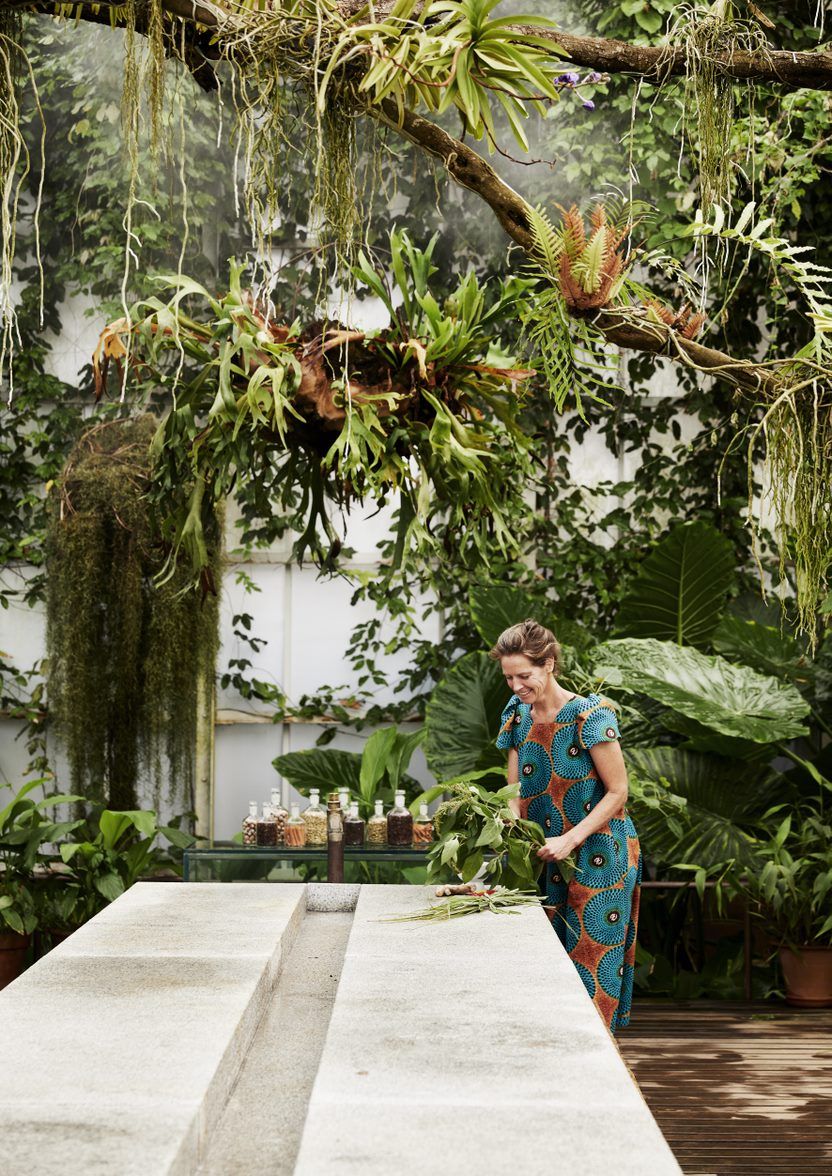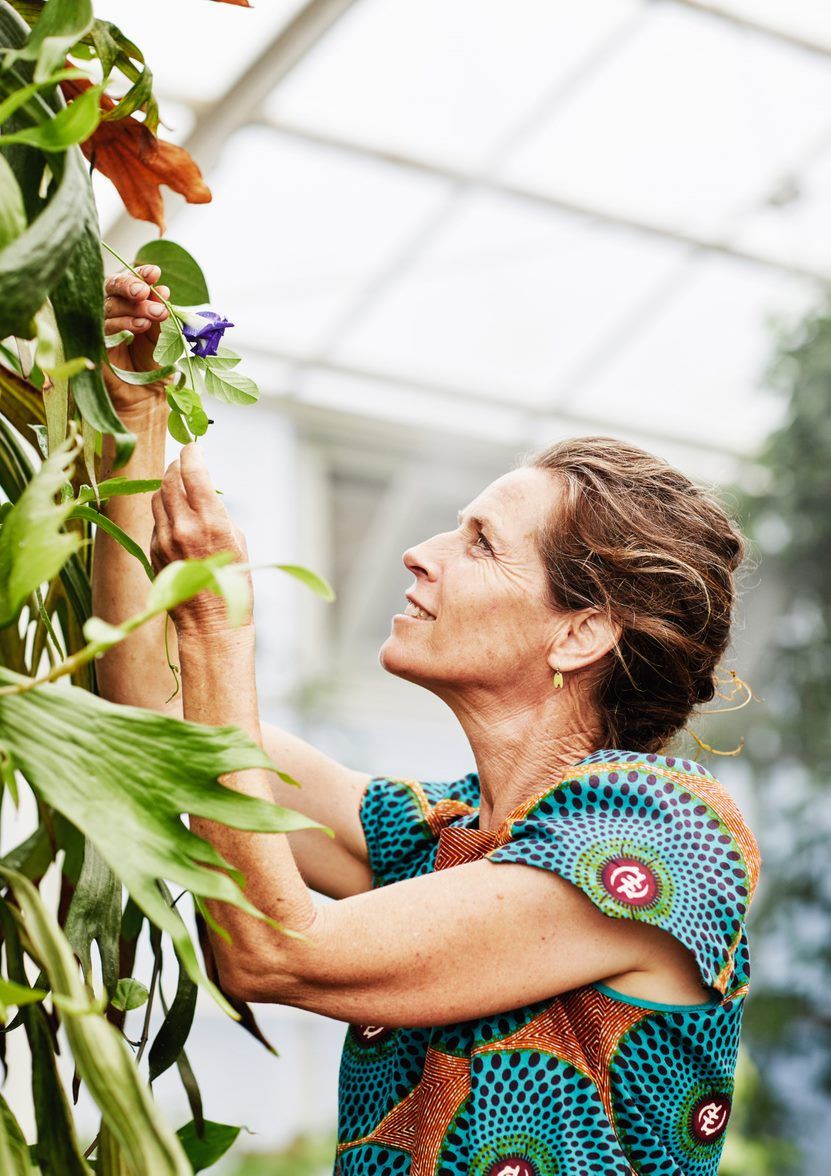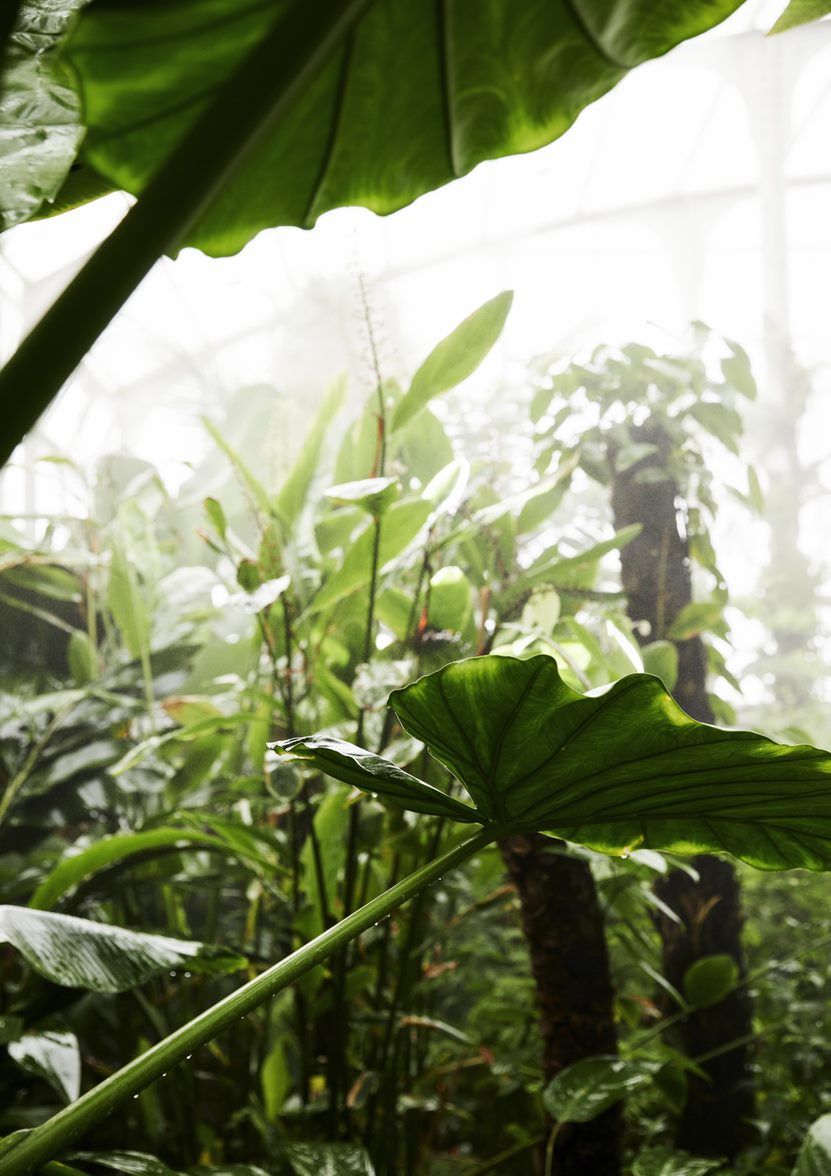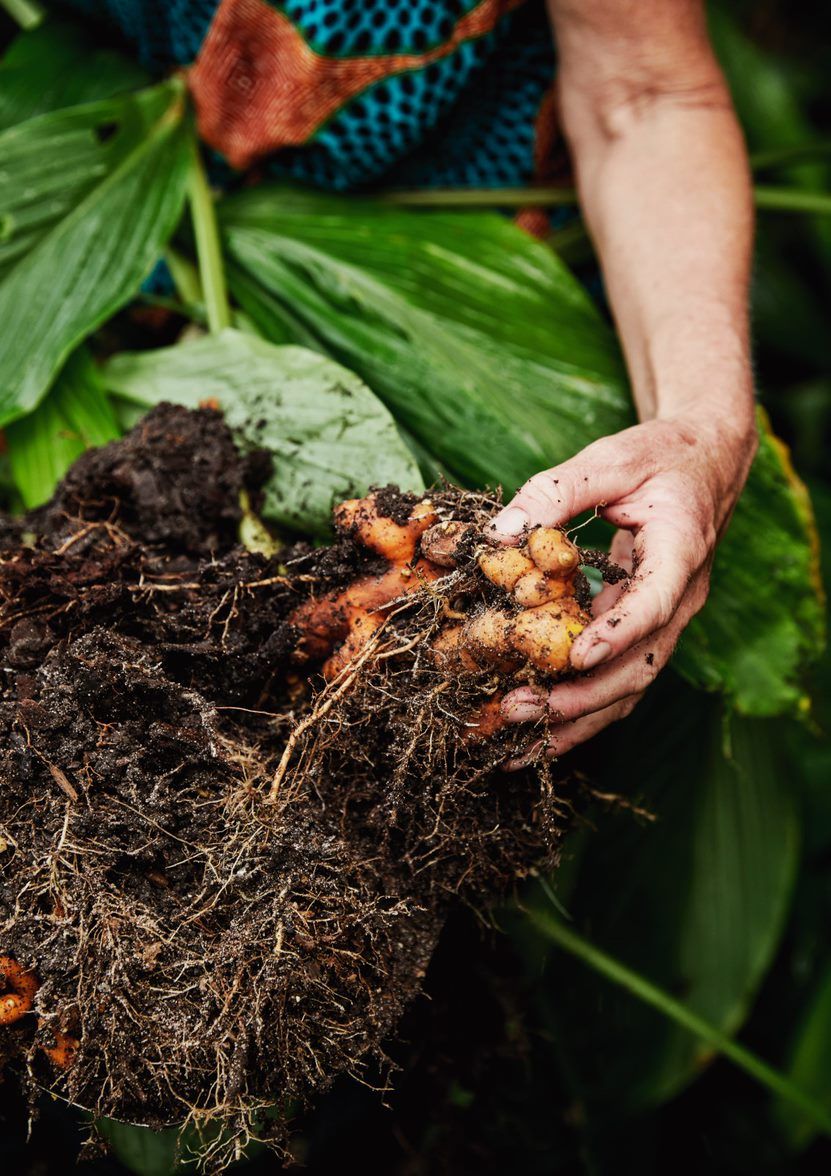In the Spice House, master gardener Gundula Deutschländer and her team have created a verdant paradise in Cape Town showcasing the many charms of spice-bearing plants
It’s just after 8am at Babylonstoren, a hotel and wine destination with a new but already world-renowned garden and farm in Cape Town, South Africa. The estate is a short drive from the city centre, and there’s bustle and activity everywhere this morning, as there always is on a working farm.
However, inside one of the garden team’s recent projects—the Spice House—all is calm and quiet. As we await master gardener Gundula Deutschländer, there is time to take in the details of the greenhouse itself: these include details such as the classic cast-metal doors, opaque glass panels, a large slab of stone fashioned into a striking table with a central water runnel and edged with wooden benches, and a slatted wooden floor raised above a pool of water populated with fish that regularly swim up into the two glass tanks placed at either end of the wooden deck. It’s pleasantly warm and humid, and the air is redolent with the subtle scents of humus-filled soil and the variety of lush tropical plants that fill the space.
In case you missed it: 5 Ways to Make Your Outdoor Area More Photogenic
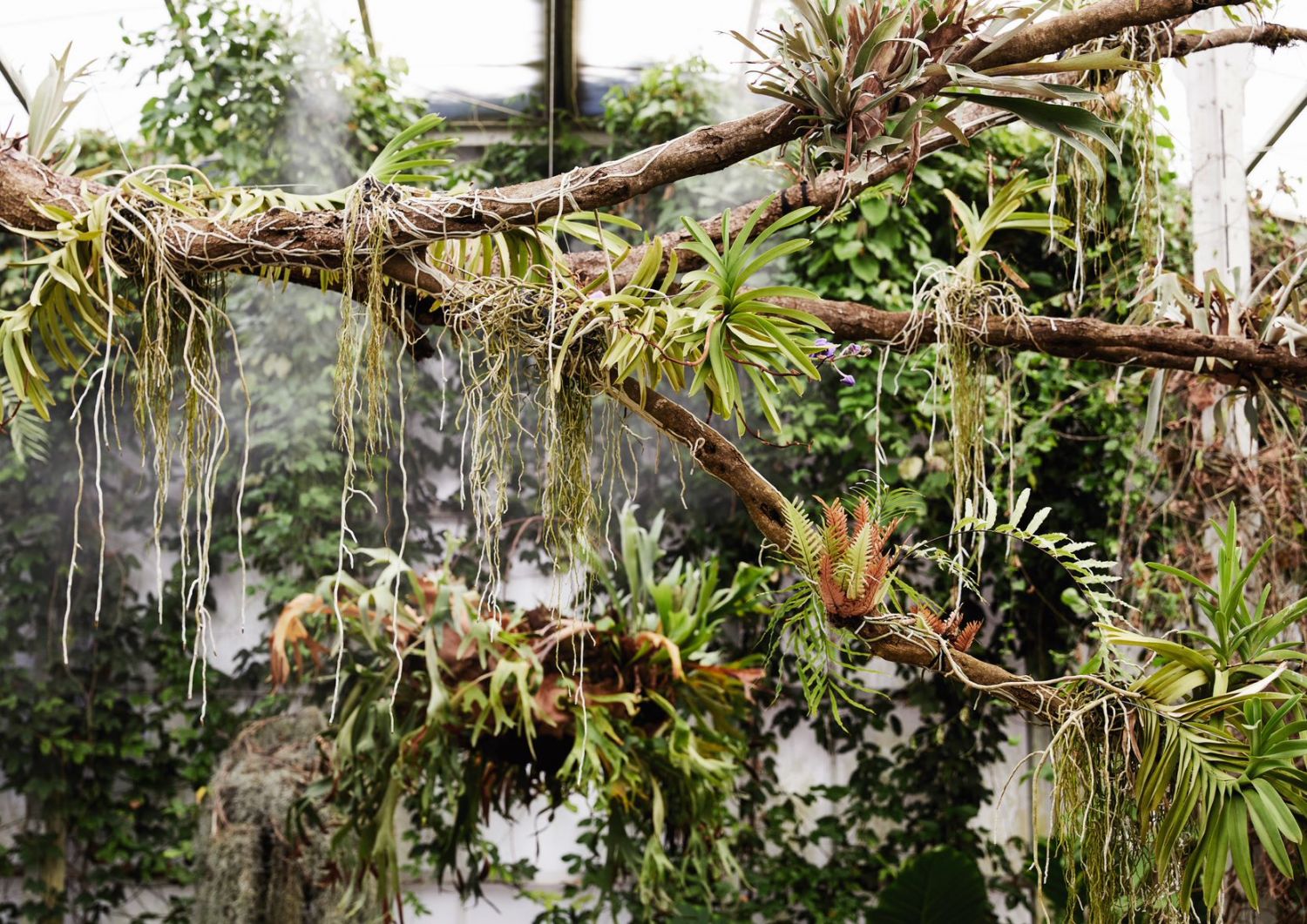
Into this beautiful, tranquil zone comes Deutschländer, who—rather like the contents of the greenhouse—glows with a gentle yet resilient energy. She is the epitome of the softly-spoken gardener who exudes subtle strength. “It’s quite remarkable this morning that we don’t have the misters on, but I think it’s because you’re here,” she smiles. “When I came here yesterday, you couldn’t see more than a metre in front of you.”
Having worked at Babylonstoren for over 13 years as its master gardener, Deutschländer has played a part in the estate’s innovative gardening efforts, and the Spice House is the latest of these. She explains that the project originated from the idea of creating a space on the farm that served as a reminder of the Cape of Good Hope’s history as a place through which so many precious spices once passed from East to West. It’s a way of paying tribute to the spices themselves, too; and to those who had “an obsession with everything exotic, from sugar to paper”, as Deutschländer puts it.

